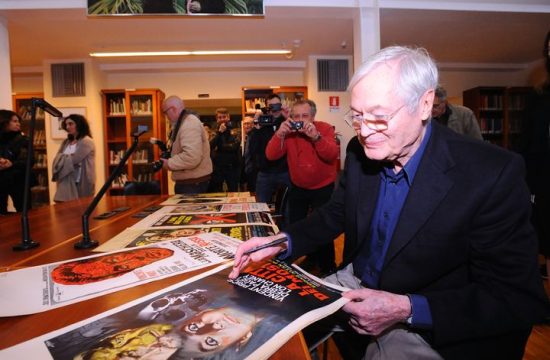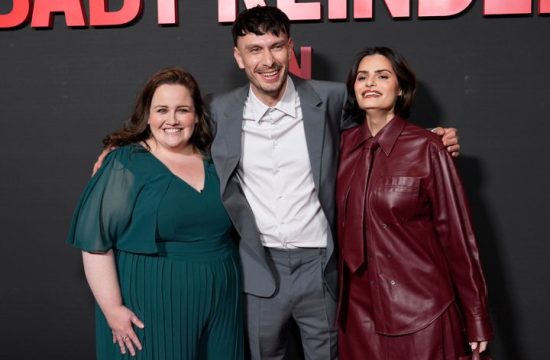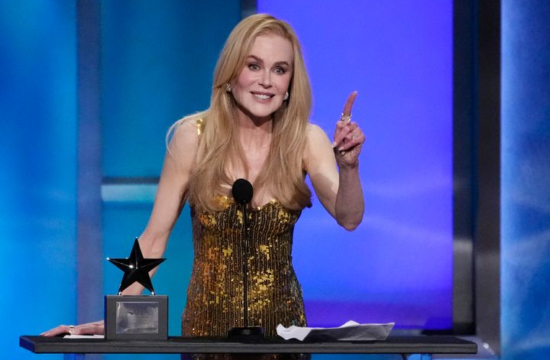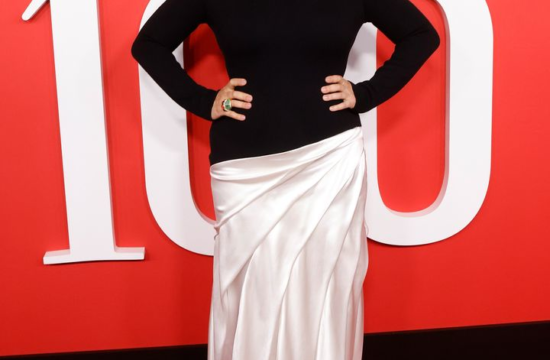Scorseses dream team of Hollywood wise guys are right on target: BRIAN VINER reviews The Irishman
The Irishman (15)
Verdict: Scorsese on top form
Midway (12a)
Verdict: Missing in action
Martin Scorsese, Robert De Niro and Al Pacino in harness for the first time, and Joe Pesci summoned out of retirement.
Three cinematic giants aged 76 and one pushing 80 … it’s little wonder folk are salivating at the prospect of The Irishman, which also features octogenarian Harvey Keitel.

Robert De Niro playing Frank Sheeran in The Irishman
After all, there will be plenty more mob movies, but none quite like this. For fans of a sacred Italian-American tradition, it marks the end of an era, a ceremonial fitting of a concrete overcoat. Scorsese directed De Niro and Keitel in Mean Streets (1973), De Niro and Pesci in both Goodfellas (1990) and Casino (1995). He has never worked with Pacino, who first presented his credentials in The Godfather (1972). So in terms of gangster films, The Irishman is an unprecedented gathering of the dream team.
Better still, it addresses a real-life mystery: what happened to Jimmy Hoffa (Pacino, giving full vent to his sheer Pacino-ness), the charismatic union boss who went missing in 1975, without any part of him ever surfacing?
An enforcer for the Philadelphia Mob called Frank ‘The Irishman’ Sheeran, who died in 2003 and is played here by De Niro, claimed responsibility. His story was told in a book called I Heard You Paint Houses — its title a reference to mobster slang for spraying victims’ blood all over the walls, usually with a gunshot to the back of the head.
The film, written by Steven Zaillian, presents Sheeran as an accomplished house-painter, who over many decades enjoys the patronage of a well-connected Philly wise-guy called Russell Bufalino — beautifully played by Pesci as a soft-spoken grandfatherly figure, the antithesis of his sociopathic Tommy DeVito in Goodfellas.
Through Russell and other gangsters, notably mob boss Angelo Bruno (Keitel), Sheeran becomes a minder for Hoffa, with whom they are in cahoots. Over time, he and the Teamsters leader become close friends, but when Hoffa falls out with his mob allies, Sheeran is forced to pick sides.

Left to right: During a break in the trial of Jimmy Hoffa, Chuckie O’Brien (Jesse Plemons), Bill Bufalino (Ray Romano), Frank Sheeran (Robert De Niro) and Hoffa (Al Pacino) are shocked at the news of JFK’s assassination
The various mobsters, by the way, arrive on screen with a caption telling us when and how they met their maker — it’s usually grisly.
It is a neat reminder that all these men actually existed — not least Anthony ‘Tony Pro’ Provenzano, a New Jersey ‘capo’ splendidly played by Britain’s Stephen Graham.
As for Sheeran, he is a World War II veteran, whose dearth of moral scruples is established in a flashback to wartime, when he guns down two surrendering enemy soldiers without a second thought. It’s a short scene but a hugely significant one. Here’s a young man for whom human life holds no value.
By now, however, we have also seen him as an old man.
Scorsese book-ends his film with Sheeran reminiscing in a care home, at long last wondering if there might be any redemption for his lifetime of cold-blooded slaying, which has cost him his relationship with his favourite daughter Peggy, played by Anna Paquin.
This film is as much about mortality as morality, and about regret as much as revenge.
Sheeran is at the heart of it, and for all his cold-heartedness, with Scorsese behind the camera and De Niro in artfully restrained form in front of it, he acquires proper humanity.
It doubtless helps that De Niro plays him throughout, over five decades, with the help of the film’s much-discussed, slightly unsettling ‘youthification’ tech.
The other thing you need to know about The Irishman is that it lasts three-and-a-half hours, so you might prefer to wait until it arrives later this month on Netflix, so you can pause it for toilet breaks, mealtimes, short holidays, whatever.
Still, the indulgent running-time does enable Scorsese to tell an awful lot of story.
In this version of history, it is the mob who have President John F. Kennedy bumped off, feeling betrayed because they helped engineer his election only for him to appoint his brother Robert as an Attorney-General determined to break organised crime.
Whatever the truth of that, The Irishman is a compelling picture, but not a perfect one. Even at such prodigious length, Scorsese cuts corners.
For example, you have to be a very over-eager consumer to buy the idea that the Irish-American Sheeran picked up his near-perfect Italian as a GI serving in Italy.
Nor, unlike The Godfather films and Scorsese’s own Goodfellas, does it contain scenes which will go down in cinematic legend.

We are served a more glorious slice of American history in the rather indigestible Midway, about the decisive naval battle which took place in the Pacific in 1942. Pictured: Ed Skrein (right) and Luke Evans (left)
But none of that means it’s anything but a pleasure to spend so much time with one great director and several great actors, all still at the top of their game.
We are served a more glorious slice of American history in the rather indigestible Midway, about the decisive naval battle which took place in the Pacific in 1942, exactly six months after President Roosevelt’s ‘day that will live in infamy’ — the Japanese attack on Pearl Harbour.
It’s an unashamedly old-fashioned, full-throttled war movie, with an extremely modest sprinkling of stars compared with the 1976 film of the same name, which boasted Charlton Heston, Henry Fonda, James Coburn, Robert Mitchum, Glenn Ford and Robert Wagner.
Here we get Dennis Quaid and an extravagantly-coiffed Woody Harrelson as U.S. admirals, plus Patrick Wilson as the intelligence chief who worked out where to find the enemy fleet.
We also get a barrage of only sporadically convincing CGI, and a decidedly clunky script that has our heroes getting the hell in, getting the hell out, sitting the hell down, standing the hell up, and generally abiding by the John Wayne handbook of wartime cliches.
Not that Wayne would have approved of a German director — Roland Emmerich.
Or, probably, of the film’s dedication, to the Japanese sailors who perished at Midway, as well as the Americans.
Or, for that matter, of the choice of a pair of Brits, Ed Skrein and Luke Evans, to play the two most insanely courageous pilots in the U.S. Navy, Dick Best and Wade McClusky. I can practically hear ‘The Duke’ grunting in his grave.
No fibbing, Mirren and McKellen are simply marvellous
The Good Liar (15)
Verdict: An acting masterclass
Martin Scorsese’s epic film The Irishman (see above) might showcase American acting royalty, but The Good Liar offers us the British version — with Dame Helen Mirren and Sir Ian McKellen lending proper heft to a complex tale of deception.
It strains and eventually threatens to snap credulity, yet remains appealingly watchable thanks to its two great leads.
It starts beguilingly, with two elderly people, both widowed, contacting each other via an online dating site, swapping small fibs about whether they smoke or drink. They meet for dinner and confess that they also fibbed about their names. He is Roy (McKellen) and she is Betty (Mirren).

Dame Helen Mirren and Sir Ian McKellen lending proper heft to a complex tale of deception in The Good Liar
Anyone who remembers McKellen as con man Mel Hutchwright in Coronation Street ten years or so back will know just how good he is at playing the treacle-voiced charmer with a dishonest agenda, but here he is a few degrees more rotten than mendacious Mel.
Roy is a crooked businessman whose designs on Betty are principally financial, not romantic, and who is not averse to having people nobbled if they stand in the way of his nefarious schemes.
When he feigns a bad knee and she invites him to stay in her bungalow rather than hobble up several flights to his top-floor London flat, the stage is perfectly set for him to swindle her out of her life savings, with the help of his similarly bent accomplice (Jim Carter).
Her grandson (Russell Tovey) seems faintly suspicious of the old boy’s motives, but even he, it appears, is eventually won over.
Nonetheless, Bill Condon’s film (he also directed McKellen in 2015’s elegiac Mr Holmes), which is adapted by Jeffrey Hatcher from a novel of the same name, doesn’t work too hard to suppress the idea that Roy will get his comeuppance, quite possibly at the hands of Betty herself.
After all, why cast Mirren if what you want is an entirely gullible old biddy?
Yet there are lots of twists and turns before the story reaches its resolution, with some flashbacks to Nazi Germany crucial to a narrative that ties itself in several knots too many.
Happily, those mighty Ms, Mirren and McKellen, wring this tale of every ounce of value.
Aeronauts blow hot and cold
The Aeronauts (PG)
Driven (15)
Luce (15)
Eddie Redmayne and Felicity Jones, who shone in 2014’s The Theory Of Everything, are reunited in The Aeronauts a tale of Victorian balloonists that is ‘inspired by true events’, but is 50 per cent hot air.
Redmayne plays James Glaisher, the watchmaker’s son who became a pioneering meteorologist. He believed that the weather could be predicted, and if only he could get high above the earth’s surface, he could collect data to convince the cynical, bewhiskered crusties at the Royal Society.
In real life, his ascents to study the atmosphere were made with a lavishly bearded aeronaut called Henry Coxwell.

Eddie Redmayne and Felicity Jones are reunited in The Aeronauts a tale of Victorian balloonists that is ‘inspired by true events’, but is 50 per cent hot air
Here, poor Coxwell is jettisoned in favour of fragrant, flamboyant and indeed fictitious Amelia Rennes (Jones), a kind of Annie Oakley of the skies.
Director Tom Harper (whose credits include last year’s excellent Wild Rose) does a fine job of choreographing the airborne scenes in particular; some of George Steel’s cinematography is genuinely superb.
But even though it benefits from the big screen, this family-friendly film feels more suited to a cosy Sunday afternoon in front of the telly.
Another true story, that of Detroit-born car maker John DeLorean, gets an airing in Driven. It’s certainly a heck of a tale.
DeLorean (Lee Pace) had a glittering career at General Motors before setting up on his own to design and manufacture the space-agey DeLorean sports car (as immortalised in the 1985 film Back To The Future).
He chooses Northern Ireland as the best place for his factory, lured by financial incentives from the British government. But when he runs out of money, DeLorean decides to raise funds with a huge cocaine deal, brokered by his friend Jim Hoffman (Jason Sudeikis), who turns out to be working for the FBI.
Unfortunately, the film’s jaunty, comedic tone too often backfires, not helped by Sudeikis, who doesn’t seem sure whether he is playing for laughs or not.
Luce is a much safer bet. Julius Onah’s uneven but intelligent, well-acted drama hinges on the character of black American teenager Luce (Kelvin Harrison Jnr), who was adopted from war-ravaged Eritrea by Amy and Peter Edgar (Naomi Watts and Tim Roth).
Luce is bright, eloquent, kind, popular, athletic and altogether a paragon of wholesome all-American youth. He seems too good to be true, which indeed his teacher (Octavia Spencer) believes him to be, causing his parents to ask some searching questions, both of him and of themselves. Well worth seeing.












